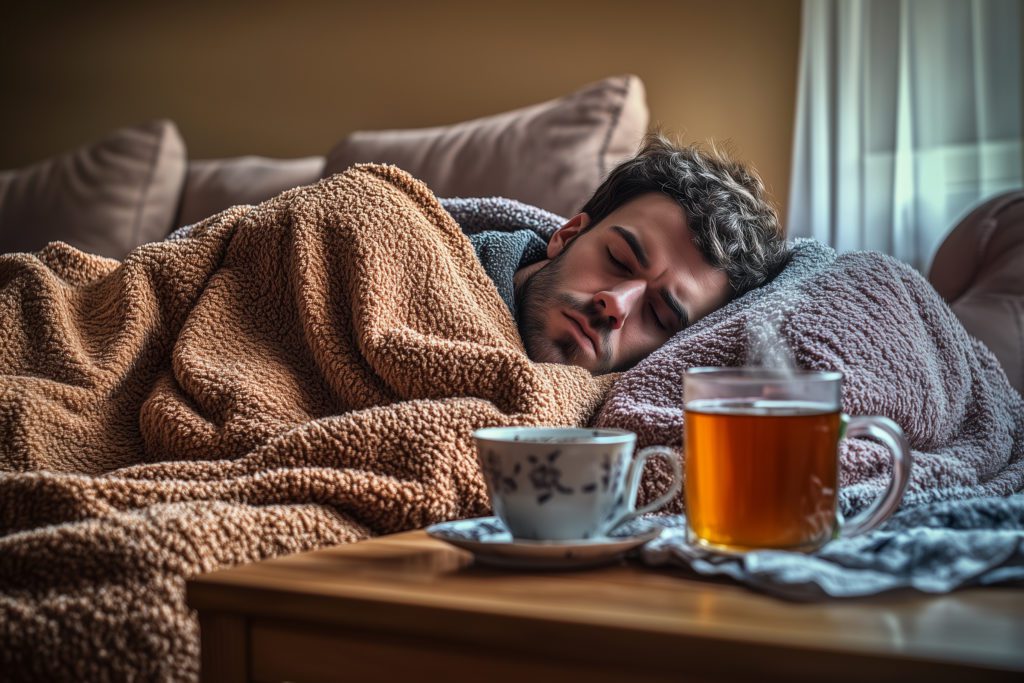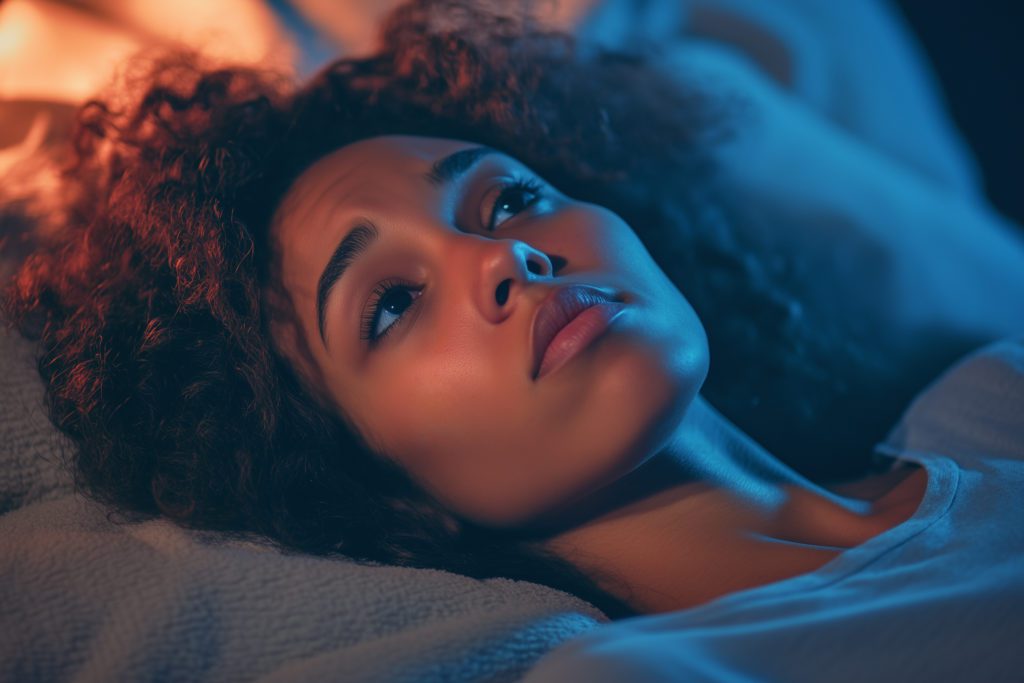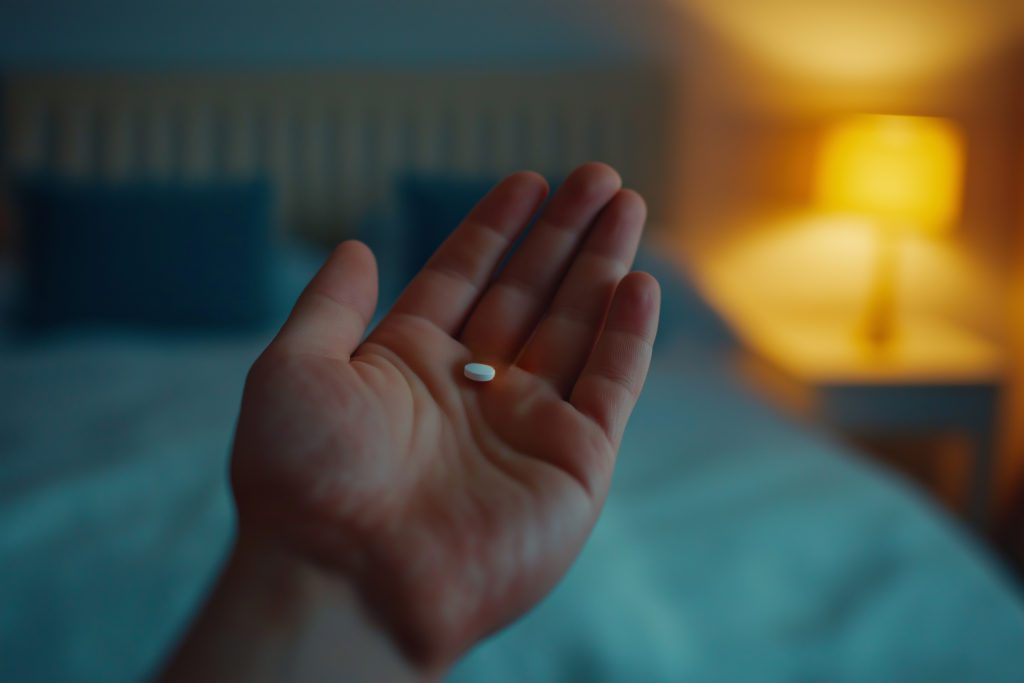
Does Sleep Affect my Skin? Improving Your Skin Health Through Better Sleep
The connection between sleep and skin health and some tips on how you can improve your skin.

You know that saying, "beauty sleep"? Well, it turns out there's more truth to it than we might think. Sleep plays a vital role in maintaining overall health, and that includes the health of our skin. Whether you're fighting off acne or hoping to keep those wrinkles at bay, your nightly rest can make a world of difference.
In this article, we'll discuss the connection between sleep and skin health and share some tips on how you can improve your skin just by hitting the snooze button a bit more often.
The Science Behind Sleep and Skin
When we sleep, we go through various stages, including light sleep, deep sleep, and REM (rapid eye movement) sleep. Each stage has its unique role in keeping our body, including our skin, in tip-top shape.
During deep sleep, the body enters a phase of intense repair and regeneration. It's like having your very own night-time construction crew working diligently to repair damaged cells and produce new ones. Growth hormones, which are crucial for skin regeneration, are also at their peak during this stage. They boost collagen production, which keeps your skin firm and elastic.
Furthermore, REM sleep helps regulate our stress hormones. High-stress levels can lead to increased oil production and breakouts. By ensuring you get enough REM sleep, you're keeping those pesky stress hormones in check, which means fewer surprise pimples and a happier, healthier you. And let's face it, who doesn't want that?
Common Skin Problems Linked to Poor Sleep
Have you ever noticed those dark circles under your eyes after a late-night Netflix binge? That's just one of the many ways poor sleep can mess with your skin. When we don't get enough sleep, our body produces more cortisol, the stress hormone. High cortisol levels can lead to all kinds of skin problems, from acne to eczema.
Lack of sleep can also disrupt the skin's natural moisture balance. Dehydrated skin looks dull, feels rough, and is more prone to wrinkles. It's like trying to keep a plant alive without water – not going to happen!
And those bags under your eyes? They're not just from lack of sleep. Poor sleep can lead to poor blood circulation, causing blood to pool under your eyes and give you that raccoon look.
Collagen is the protein that keeps our skin plump and youthful. Without sufficient sleep, collagen production slows down, paving the way for sagging skin and fine lines (signs of aging skin). If you've ever wondered why you look a bit more "zombified" after a sleepless night, now you know!
Benefits of Good Sleep for Skin Health
On the flip side, getting a good night's sleep can work wonders for your skin. Imagine waking up and looking in the mirror to find a fresher, more radiant you. Sounds like a dream, right? Well, it's entirely possible when you prioritize sleep.
Good sleep gives your skin ample time to repair itself. During the deep sleep stage, your body ramps up the production of collagen and growth hormones. This helps heal any damage from UV exposure or pollutants and boosts the skin's ability to retain moisture, leaving you with a hydrated, glowing complexion.
Moreover, quality sleep reduces cortisol levels, which means less inflammation and fewer breakouts. Say goodbye to those uninvited pimples! Reduced stress levels also mean your skin gets more time to repair and regenerate, reducing the appearance of fine lines and wrinkles.
Another perk? Sleep enhances blood flow to the skin. Improved circulation ensures that your skin gets all the nutrients it needs to stay healthy and radiant. It's like giving your skin a daily dose of vitamins. So, next time you think about skimping on sleep, remember that those extra hours in bed are actually an investment in your skin's future.
Tips for Better Sleep and Healthier Skin
Now that we've established the beauty benefits of sleep let's talk about how you can improve your sleep for healthier skin. Here are some tips to help you get the best beauty sleep possible.
Maintain a regular sleep schedule.
Going to bed and waking up at the same time every day helps regulate your body's internal clock, making it easier to fall asleep and stay asleep. It might be tempting to sleep in on weekends, but consistency is key. If you need assistance, Pillow helps you monitor your sleep patterns and provides personalized insights to improve your sleep quality.
Creating a bedtime routine can also work wonders.
Try winding down with calming activities like reading a book, taking a warm bath, or practicing some light yoga. Avoid screens an hour before bed – yes, that means putting down your phone! The blue light emitted by screens can interfere with your sleep cycle by tricking your brain into thinking it's still daytime.
Skin care before bed is equally important. Cleanse your face to remove any dirt or makeup, and apply a good moisturizer to keep your skin hydrated overnight. Consider using a silk pillowcase to reduce friction and prevent wrinkles.
Create a sleep-friendly environment.
Keep your bedroom cool, dark, and quiet. Investing in a good mattress and pillows can make a significant difference in your sleep quality. And remember, your bed is for sleep and relaxation only – no work or binge-watching TV shows.
With these tips, you not only achieve better quality sleep but healthier, lively, and blemish-free skin.

Written by
Dr Aqsa
As a Medical Doctor, Dr Aqsa, uses her knowledge to craft complex medical information that is understandable to the general public. For years, she has tried to improve health literacy and empower readers with valuable health knowledge through her articles, blog posts, and educational materials.
Download Pillow
Get help
Press & News
Legal
Connect
X (Twitter)
Company
Copyright © Neybox Digital Ltd.



